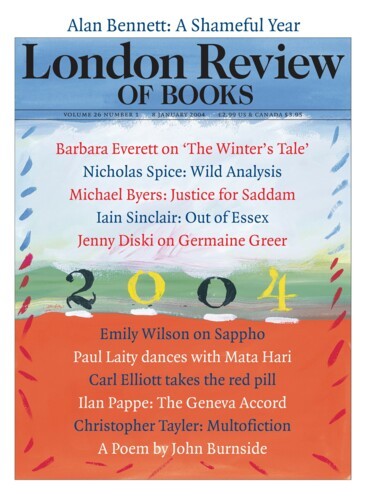Matthew 19-22
This is as good as it gets:
this cold fog over the water, this pale
companion to the dreams I can’t forget
and never quite recall.
Stale afternoon. My neighbour stands in her yard
and watches the sky:
her children are gone; her husband is lost at sea;
how she remembers them now is by looking out patterns
for Arran sweaters, mittens,
balaclavas. Her landlord, a lickspittle spiv
in a flat tweed cap,
sits in his house on Toll Road
counting his money.
He’s not really sure what it’s for,
and he’s mostly past caring
– maybe he knew something once, and maybe he woke
in the small of the dark with a glimmer of scent on his hands
that he couldn’t quite place.
Now he’s alone with his ledger.
He won’t have a cat.
All day, the harbour dwindles.
Nothing much happens; there’s nothing to smell or touch,
the shore road is mostly gift shops and fish ‘n’ chips,
a colourless tavern, the glister of handmade toffees.
There are day trips out to the island, to see the puffins;
fairground attractions; amusements; a tidy marina;
boys in their hot-cars, waiting for someone to see them;
fishermen; coaches; pleasure boats; tailored poodles.
It’s warmer at night, when the lights go on in the pool hall,
the moon on the empty firth like the spirit of neon,
girls from the Glasgow Fair drifting down to The Ship
for vodka and cranberry, Budweiser, rum and black,
but days are best: these days of salt and fog,
mornings when last night’s dreams fit snug in my head,
erotic and golden, the clue to a better life
than this fudged and elaborate pact with a stranger’s daytime.
The old town is gone.
The high sails out on the water,
boatloads of herring
gutted and trimmed on the pier,
the marriage feasts of skate
– to bring forth children –
the dead in their box-beds,
whispering under the eaves.
Now, as the haar comes in,
I look for ghosts,
children with dip-nets, women with salt in their faces,
men going out before dawn in the coats that will drown them,
but this is as good as it gets: this quiet fog,
the cool of it threading my eyes
with the promise of elsewhere,
its breath on my skin like the lover I meet in a dream.
My neighbour stands in her yard and stares at the sea;
her landlord drifts in a stupor of calculation;
the town hall opens for bingo; the harbour whitens;
foghorns call from the firth, like abandoned cattle;
and as I walk back from town with the milk and a paper,
the haar whites out the main streets, one by one:
James Street, John Street, Burnside, Tollbooth Wynd,
one step ahead all the time, as I make my way home,
tracing a path of erasure back to the house
where all I possess is laid up, like a storm:
my furniture, my books, my ornaments,
my lost love in the kitchen, brewing tea.
Send Letters To:
The Editor
London Review of Books,
28 Little Russell Street
London, WC1A 2HN
letters@lrb.co.uk
Please include name, address, and a telephone number.

